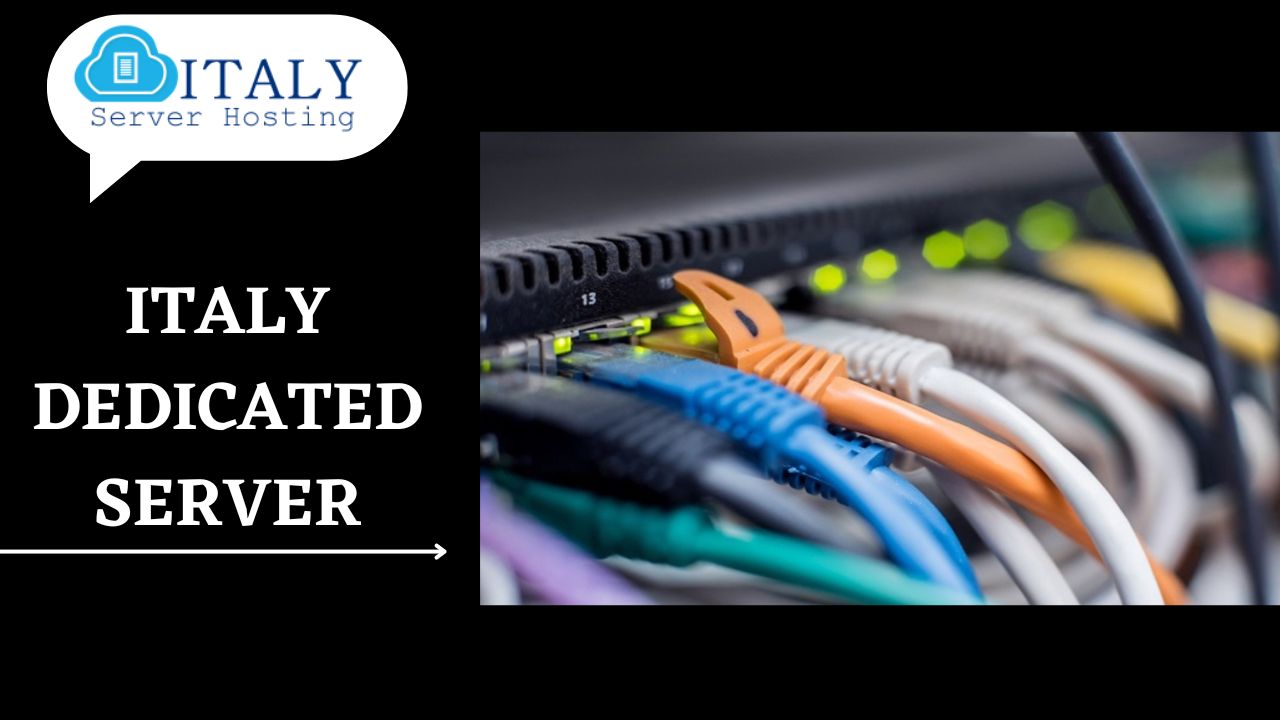Italy Server Hosting is a hosting service that provides exclusive server resources to a single user or organization. It offers enhanced performance, reliability, and security compared to shared hosting or virtual private servers. An means that the physical server is solely dedicated to the client’s needs, allowing them complete control over the server environment. gives businesses the power, management, and reliability to deliver high-performance online experiences to their users, making it an attractive choice for organizations targeting the Italian or European market.
Features and Specifications of Dedicated Server
The dedicated server is a powerful and robust computing machine designed to meet the demanding needs of businesses and organizations. They offer many features and specifications, making them a preferred choice for hosting high-traffic websites, running resource-intensive applications, and handling large-scale data processing. There are some key features and specifications of a dedicated server:
1. Processing Power:
Italy Dedicated Server is equipped with high-performance processors, typically multi-core CPUs, capable of handling complex tasks and heavy workloads. These processors ensure fast and efficient execution of applications and provide the necessary computational power for demanding tasks.
2. Memory (RAM):
Dedicated servers have large amounts of RAM, allowing them to handle multiple concurrent processes and provide faster data access. Ample RAM ensures smooth performance and efficient handling of data-intensive operations.
3. Storage:
This server offers generous storage capacities, often with multiple hard drives or solid-state drives (SSDs) configured in various RAID levels for data redundancy and increased reliability. This allows businesses to store and access large volumes of data efficiently.
4. Bandwidth:
Dedicated servers typically have high-speed, unmetered bandwidth, ensuring fast and consistent network connectivity. This is crucial for handling high traffic volumes, supporting seamless user experiences, and facilitating smooth data transfers.
5. Operating System:
A dedicated server provides flexibility regarding the operating system (OS) they can run. Whether it’s Linux distributions (such as Ubuntu, CentOS, or Debian) or Windows Server editions, businesses can choose the OS that best suits their specific requirements.
6. Dedicated IP Address:
Each dedicated server comes with its correct IP address, providing a unique identifier for the server and allowing businesses to host websites, applications, or services on specific IP addresses.
Overall, Italy Dedicated Server offers a comprehensive set of features and specifications designed to meet the high-performance demands of businesses. With their processing power, ample memory, generous storage, and robust security measures, dedicated servers empower organizations to handle resource-intensive tasks, maintain optimal performance, and deliver reliable services to their users.
Security Measures for Dedicated Server
Security measures for a dedicated server are essential to protect sensitive data, prevent unauthorized access, and ensure the server’s smooth operation. With an Italy Dedicated Server critical applications and websites, it is crucial to implement robust security measures. Here are some key considerations:
1. Firewall Protection:
Deploy a robust firewall to control incoming and outgoing network traffic, blocking malicious attempts and unauthorized access to the server. Configure firewall rules to allow only necessary services and ports.
2. Regular Updates:
Keep the operating system, server software, and applications updated with the latest security patches. Regular updates ensure that vulnerabilities are patched, reducing the risk of exploitation.
3. Strong Authentication:
Implement robust password policies, enforcing complex passwords and periodic password changes. Consider implementing two-factor authentication (2FA) for an additional layer of security, requiring a second verification method for accessing the server.
4. Intrusion Detection/Prevention System (IDS/IPS):
Utilize IDS/IPS software to detect and prevent suspicious activities and potential attacks. These systems monitor network traffic and system logs, alerting administrators of malicious behavior.
5. Secure Remote Access:
Limit remote access to trusted IP addresses or use virtual private network (VPN) connections for secure remote administration—Disable unnecessary remote access services to minimize potential attack vectors.
6. Regular Backups:
Perform server data backups and configurations to ensure data integrity and facilitate recovery in case of a security incident or hardware failure.
7. Security Auditing:
Conduct periodic security audits to assess the server’s vulnerabilities and identify potential security gaps. Address any findings promptly to maintain a secure environment.
8. Log Monitoring:
Enable comprehensive logging and monitor logs regularly for suspicious activities. Analyzing server logs can help detect and respond to security incidents promptly.
9. Secure File Transfer:
Use secure file transfer protocols, such as SFTP or SCP, for transferring files to and from the server. Encrypt sensitive data during transit to prevent unauthorized access.
By implementing these security measures, administrators can enhance the protection of dedicated servers, mitigate risks, and maintain a secure hosting environment for critical applications and data. Regular monitoring, updates, and proactive security practices are essential to stay ahead of potential threats and ensure the ongoing security of the dedicated server.
Tips for Optimizing Performance on Dedicated Server
Optimizing performance on an Italy Dedicated Server is crucial for maximizing its capabilities and ensuring smooth operations for your applications and websites. There are some valuable tips to help you optimize performance and get the most out of your dedicated server:
Resource Allocation:
Understand the resource requirements of your applications and allocate server resources accordingly. Adjust CPU cores, memory, and disk space to match the workload demands. Avoid oversubscribing resources, as it can lead to performance degradation.
Caching Mechanisms:
Implement caching mechanisms at various levels to reduce the load on the server. Use application-level caching, content delivery networks (CDNs), and reverse proxies to cache static content, database queries, and frequently accessed data. Caching improves response times and reduces server load.
Load Balancing:
If you have multiple servers, consider implementing load-balancing techniques to distribute incoming traffic evenly. Load balancers can optimize performance by directing requests to the server with the lowest gear, ensuring efficient resource utilization and minimizing response times.
Content Optimization:
Optimize your website’s content to reduce load times. Compress images and files, minify CSS and JavaScript, and leverage browser caching. Use Content Delivery Networks (CDNs) to distribute content across multiple servers and reduce latency for users in different geographical locations.
Security Measures:
Ensure your server is protected from security threats. Implement robust firewalls, intrusion detection systems, and regular security audits. Secure your server configurations, use strong passwords, and keep software up to date to mitigate potential vulnerabilities.
Optimal Server Software:
Choose the appropriate software stack for your server. Optimize web server configurations, choose lightweight and efficient frameworks, and disable unnecessary services and modules that consume resources.
Analyze and Fine-tune:
Continuously analyze server logs, performance metrics, and user feedback. Identify bottlenecks, performance issues, and user experience problems: Fine-tune server configurations, application code, and infrastructure to optimize performance based on these insights.
Conclusion
Italy Dedicated Server by Italy Server Hosting offers a powerful solution for businesses seeking to enhance their operations. With robust infrastructure, reliable performance, and dedicated resources, it empowers businesses with superior control, security, and scalability. By leveraging, companies can optimize their productivity, improve customer experience, and drive success in the competitive market.

